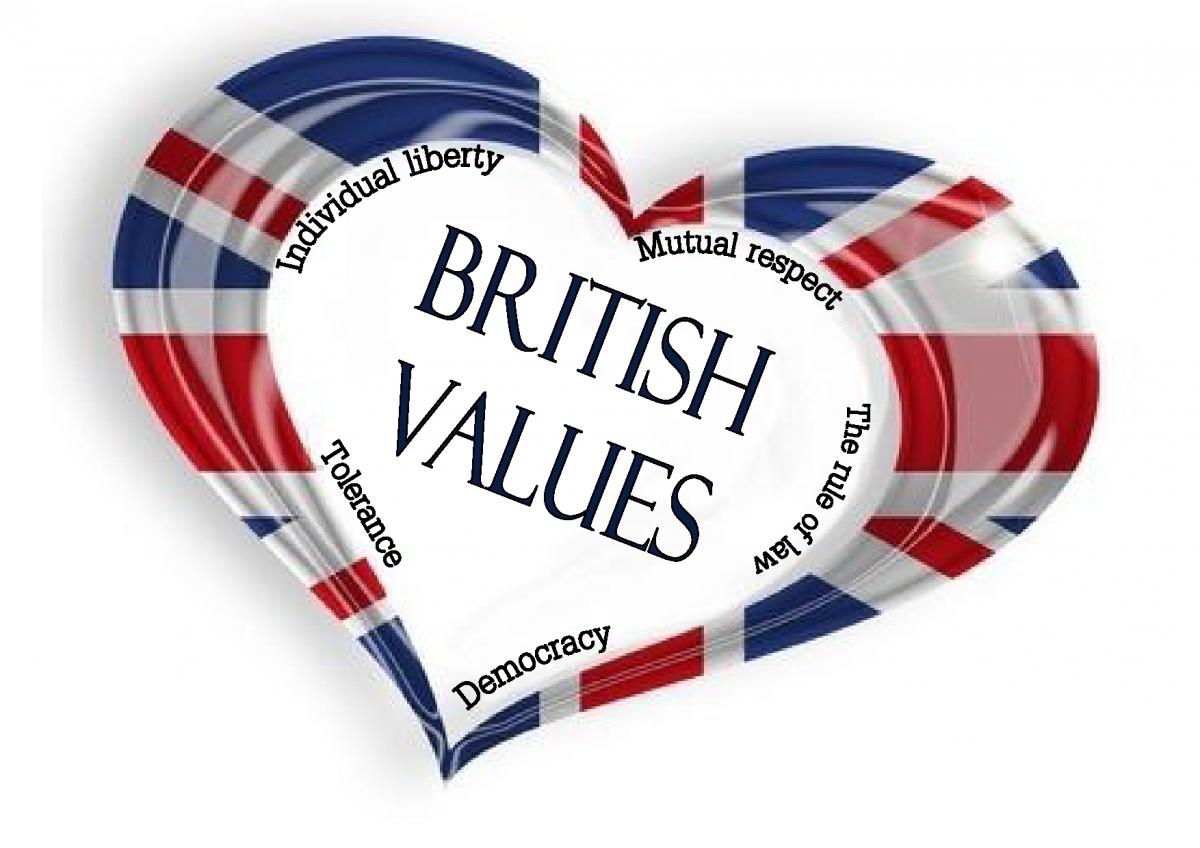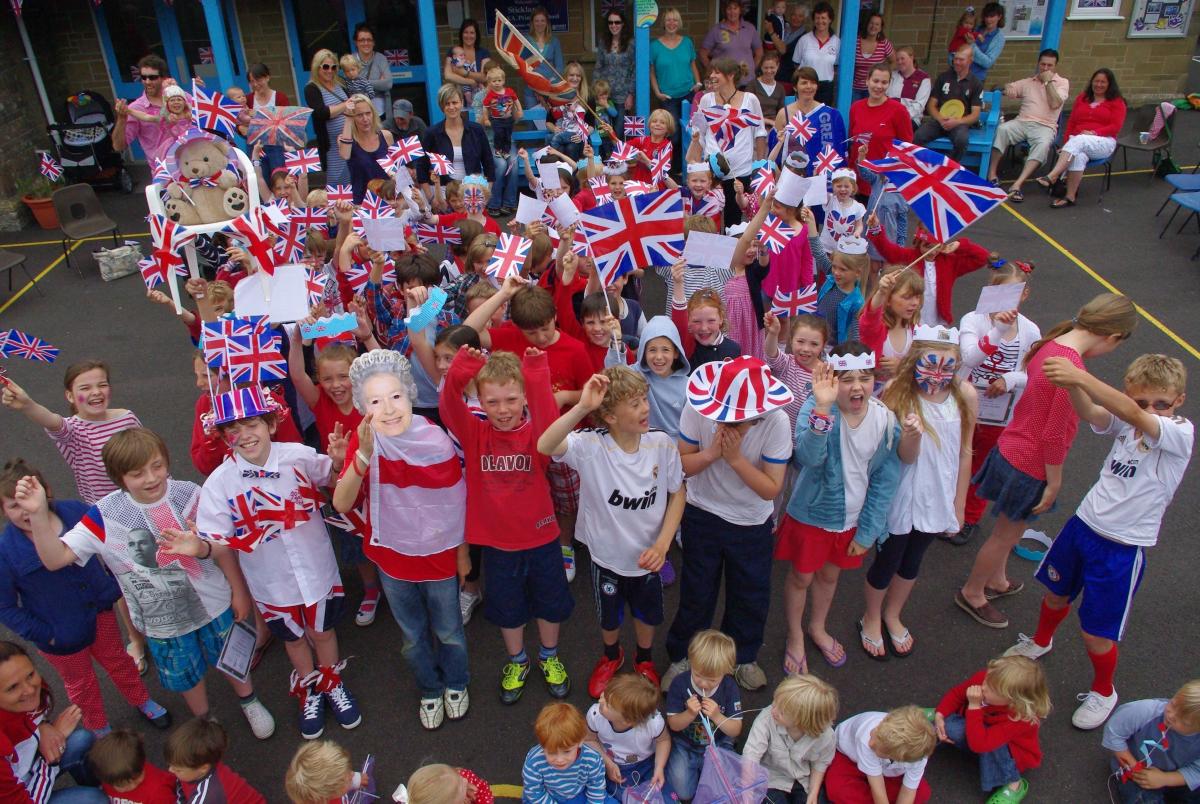British Values


The Primary National Curriculum reinforces:
“The need to create and enforce a clear and rigorous expectation on all schools to promote the fundamental British values of democracy, the rule of law, individual liberty and mutual respect and tolerance of those with different faiths and beliefs.”
At Stickland’s Primary School, British values are promoted in much of what we do, not least during our school assemblies, Religious Education and PSHE sessions. We focus on a different British Value each half term, although will cover others if local or national events make them appropriate.
As well as actively promoting British values, the opposite also applies: we would actively challenge pupils, staff or parents expressing opinions contrary to fundamental British values, including ‘extremist’ views.
The term ‘British values’ is slightly misleading, in that these values are integral to many countries throughout the world – they differ in no way from the values of most western European countries, for example.
Below are just a few examples of how we promote British values. The first section is a general overview; the others are specific expectations set out by Ofsted.
Schools are subject to a duty (Section 26, Counter-Terrorism and Security Act 2015) to have “due regard to the need to prevent people from being drawn into terrorism”.
Being part of Britain
As a school, we value and celebrate the diverse heritages of everybody at Stickland’s School. Alongside this, we value and celebrate being part of Britain. In general terms, this means that we celebrate or teach the children about different traditions, customs and national events in the course of the year; for example, Remembrance Day, pantomimes, Pancake Day, British Saints Days and Royal events.
Children also learn about being part of Britain from specific curriculum perspectives. Two examples are:
Geographically: We teach our children to have a better understanding of Britain, learning more about:
- its capital cities and counties, its rivers and mountains
- how ‘Great Britain’ differs from ‘England’ and ‘the United Kingdom.
- where Britain is in relation to the rest of Europe and other countries in the world
Historically: Through history based project work, children learn about an aspect of life and how this has developed and changed over time. The actual topic depends on the interests of the children but might include inventions and discoveries, or houses, or medicine.
Specific ‘British Values’
Democracy
Democracy is an integral part of our school culture.
The whole school are involved in voting on aspects of school life such the citizenship award at the end of each academic year.
Another example is our School Council. The election of the School Council members reflects our British electoral system and demonstrates democracy in action: pupils consider characteristics important for an elected representative, pupils vote in secret using ballot boxes etc. Made up of two representatives from each class, the School Council meets regularly to discuss issues raised by the different classes. The council is able to genuinely effect change within the school; for example, it has contributed ideas for the new play structure, and a Leavers Wall. The Council are also regularly involved in recruitment of staff and in providing teachers with feedback on their learning.
Other examples of ‘pupil voice’ are:
- children agree their Class Charter and the rights associated with these;
- children are asked to respond and reflect on the teaching and learning
- children nominate various charities, and suggest ideas for fund raising events. They are actively involved in planning and running these fund raising events.
Pupils are always listened to by adults and are taught to listen carefully and with concern to each other, respecting the right of every individual to have their opinions and voices heard. We encourage pupils to take ownership of not only their school but also of their own learning and progress. This encourages a heightened sense of both personal and social responsibility and is demonstrated on a daily basis by our pupils.
The Rule of Law
The importance of rules and laws, whether they are those that govern our school or our country, are referred to and reinforced often, such as in assemblies and when reflecting on behaviour choices. At the start of the school year, each class discusses and sets its own Class Charter, a set of principles that are clearly understood by all and seen to be necessary to ensure that every class member is able to learn in a safe and ordered environment.
Pupils are taught the value and reasons behind laws, that they govern and protect us, the responsibilities that this involves, and the consequences when laws are broken. These values are reinforced in different ways:
- visits from authorities such as the police and fire service
- during Religious Education, when rules for particular faiths are thought about
- during other school subjects, where there is respect and appreciation for different rules – in a sports lesson, for example
Individual liberty
At Stickland’s, pupils are actively encouraged to make the right choices. Alongside rules and laws, we educate and provide boundaries for young pupils to make wise choices, through the provision of a safe environment and empowering education. Pupils are encouraged to know, understand and exercise their rights and personal freedoms and are advised how to do this safely, for example through our E-Safety and PSHE lessons. Whether it is through choice of challenge or of participation in our extra-curricular clubs and opportunities, pupils are given the freedom to make choices.
Mutual respect
Pupils have discussions both in class and assemblies relating to what this means and how it is shown. We also have strong sporting values that are demonstrated through our team games against local schools and competitive sporting events that are regularly attended. All children are taught to show good sportsmanship whether they win, lose or draw.
Our pupils know and understand that it is expected and imperative that respect is shown to everyone, whatever differences we may have, and to everything, from a school resource for example to a religious belief. Children learn that their behaviour choices have an effect on their own rights and those of others. All members of the school community should treat each other with respect.
Tolerance of those of Different Faiths and Beliefs
We actively promote diversity through our teaching and celebration of different faiths and cultures. Assemblies and discussions involving prejudices and prejudice-based bullying have been held and are supported by learning in RE and PSHE. Members of different faiths or religions are encouraged to share their knowledge to enhance learning within classes and the school.
Extremism
Something which is clearly not part of any British or European value is extremism. It is important to remember that whilst the threat from so-called Islamic State has been a focus in the Counter Terrorism and Security Act, the Prevent Duty is clear that extremism of all kinds should be tackled too. In England, far right groups such as Britain First and the English Defence League need to be tackled, too. Extremism is not a new topic in education, but schools have a relatively new statutory duty to pay “due regard to the need to prevent people from being drawn into terrorism” (see our Child Protection Policy for further details).